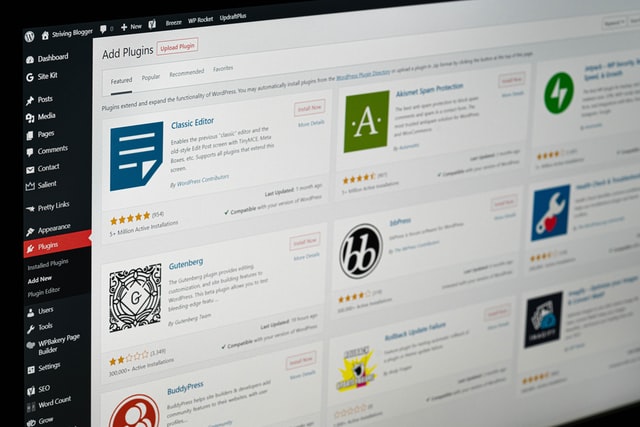Techssocial | Website loading speeds have become more important as an increasing number of users are accessing sites through smartphones. Before mobile users dominated the online landscape, web developers thought they could get away with excessive design features. That was a natural result of internet speeds increasing on account of optic becoming the new standard. However, in the new era of mobile-friendly design, website load speeds have again become a prime concern of web developers. These are the most common 7 reasons your website is slow and what you should do to improve the load times of your pages.
Table of Contents
The importance of website speed
Users who are forced to wait more than a few seconds after every click will quickly become frustrated and leave. If they are on the phone, users might be cautious of how much data they spend on your site. This could lead them to not even visit in the first place. An essential part of the mobile-friendly design is accounting for load times and ensuring pages load quickly. It’s not just about being friendly and forthcoming to your site’s visitors. Search engines can also reward or penalize your ranking based on the optimization of your page. A slow website can actually cost you a drop in search result rankings and a loss of visitors.
Here are 7 reasons your website is slow
-
Unoptimized media
Large media files are one of the main reasons websites are slow to load. Thankfully, these problems are the easiest to fix. All of the media files on your website need to be optimized for online use. Make the files as small as you can, and keep an eye out for the following:
- File types. Take a look at the file types of images you are using on your site. Compress raster files before uploading them.
- Image size. It’s wise to have multiple sizes of images to use in thumbnails and previews. Save the full larger size versions only for photo galleries.
- Vector images. Anything you plan to resize on several different pages should be a vector as they are easier to scale. Trendy logo designs are eye-catching, but make your company logo a vector so that it doesn’t slow down every page you put it on.
- Video files. Disable autoplay on videos and avoid unnecessary animations of any sort. They may look nice, but they slow down your website. Auto-play videos can also frustrate users after the first few times they visit your website.
-
Lack of caching
If your website is built up of static files and has no caching techniques – it will be slow. Processing user requests and contacting the server takes time, and loading individual files are hugely inefficient. The best way to go around this problem is to implement caching. It can either be on the server-side or browser caching. Caching keeps local copies of static assets to reduce load times.
-
Network issues
Most servers have a limited load and can only cater to a limited number of users at any time. Certain servers apply memory caps and data restrictions in order to handle a more significant number of user requests. Therefore, your choice of hosting may be the cause of the reasons your website is slow. Run a traceroute diagnostic to determine where the choke point is. You can also talk to your hosting provider to see if they offer packages with faster access speeds.
-
Code bloat
Brevity is the soul of wit. This proverb is as true for website design as it is for everyday speech. Your website code needs to be elegant, sleek, and efficient. Here is where websites most commonly suffer bloat:
- JavaScript. If enabled incorrectly, JavaScript can lead to render-blocking code bloat. While bloat is easier to notice when looking at the code, render-blocking can still cause a lot of trouble. Thankfully, Google developers have a handy guide to removing render-blocking in JavaScript.
- HTML. Attention to detail matters, and any excess code needs to be removed. Make your code clean so that websites have an easy time reading and loading your pages.
- CSS. You should use inline CSS and try to reduce or merge the number of external CSS files.

-
Too many ads
It can be tempting to load your website with many ads to increase your monetization income. However, you need to find a balance between monetization and user experience. Firstly, users really dislike constantly getting bombarded with ads. More importantly, having too many ads can slow down your website. Productive use of ads is important, and knowing how to effectively use pop-up ads is a skill you need to master.
-
Missing files and broken links
Have you ever been to a website that couldn’t load a page and was stuck trying for quite a while before delivering a 404 error? Broken pages are frustrating not only because of the missing content but also because users had to wait only to get nothing in the end.
Missing files on your website can be due to an error in your WordPress install. Those absent files can lead to excessive load times. Check to see if all the files are present and do a clean install if needed. When it comes to broken links, it is far better to remove them than to cause the website to try to load something that isn’t there.
-
Plugins
Plugins are helpful for any site as they provide added functionality on the same page. They keep users on your pages longer without the need for them to visit other sites. WordPress has many useful plugins that will help you keep users engaged for a longer time. Keep in mind that while a few plugins are fine, throwing in everything but the kitchen sink will slow down your website.

Summing up
Now that we’ve outlined the most common 7 reasons your website is slow, you will know what to look out for and avoid these problems in the future. Keep your website fast to let search engines know they should be sending users your way. And the users that visit your site will surely have a great experience if they aren’t spending unwanted time just waiting for pages to load.
Diane Spencer is a web administrator for WP Full Care. She has been building, maintaining, and running websites for more than a decade. During this time, she has come to believe that user experience is the determining factor in the success of any online endeavor, and improving it has become her primary focus in her work.
